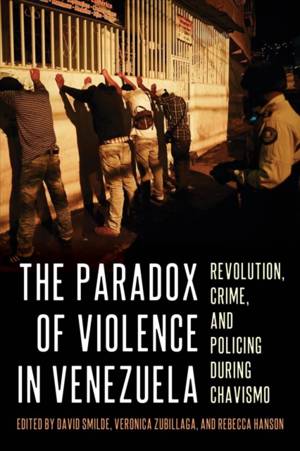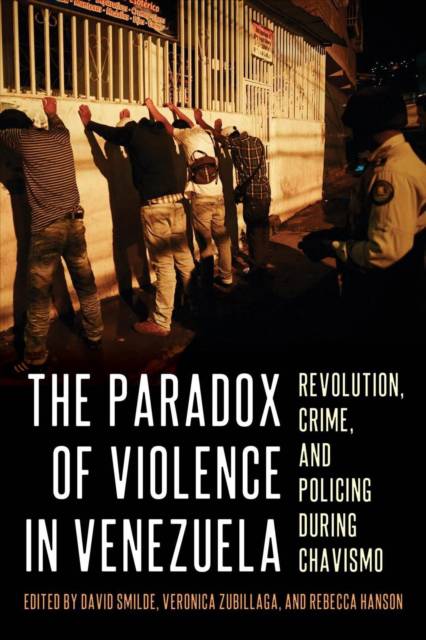
- Afhalen na 1 uur in een winkel met voorraad
- Gratis thuislevering in België vanaf € 30
- Ruim aanbod met 7 miljoen producten
- Afhalen na 1 uur in een winkel met voorraad
- Gratis thuislevering in België vanaf € 30
- Ruim aanbod met 7 miljoen producten
Zoeken
The Paradox of Violence in Venezuela
Revolution, Crime, and Policing During Chavismo
€ 91,95
+ 183 punten
Omschrijving
Crime and violence soared in twenty-first-century Venezuela even as poverty and inequality decreased, contradicting the conventional wisdom that these are the underlying causes of violence. The Paradox of Violence in Venezuela explains the rise of violence under both Hugo Chávez and Nicolás Maduro--leftist presidents who made considerable investment in social programs and political inclusion. Contributors argue that violence arose not from the frustration of inequality, or the needs created by poverty, but rather from the interrelated factors of a particular type of revolutionary governance, extraordinary oil revenues, a reliance on militarized policing, and the persistence of concentrated disadvantage. These factors led to dramatic but unequal economic growth, massive institutional and social change, and dysfunctional criminal justice policies that destabilized illicit markets and social networks, leading to an increase in violent conflict resolution. The Paradox of Violence in Venezuela reorients thinking about violence and its relationship to poverty, inequality, and the state.
Specificaties
Betrokkenen
- Uitgeverij:
Inhoud
- Aantal bladzijden:
- 312
- Taal:
- Engels
- Reeks:
Eigenschappen
- Productcode (EAN):
- 9780822947127
- Verschijningsdatum:
- 30/05/2023
- Uitvoering:
- Hardcover
- Formaat:
- Genaaid
- Afmetingen:
- 152 mm x 232 mm
- Gewicht:
- 557 g

Alleen bij Standaard Boekhandel
+ 183 punten op je klantenkaart van Standaard Boekhandel
Beoordelingen
We publiceren alleen reviews die voldoen aan de voorwaarden voor reviews. Bekijk onze voorwaarden voor reviews.










